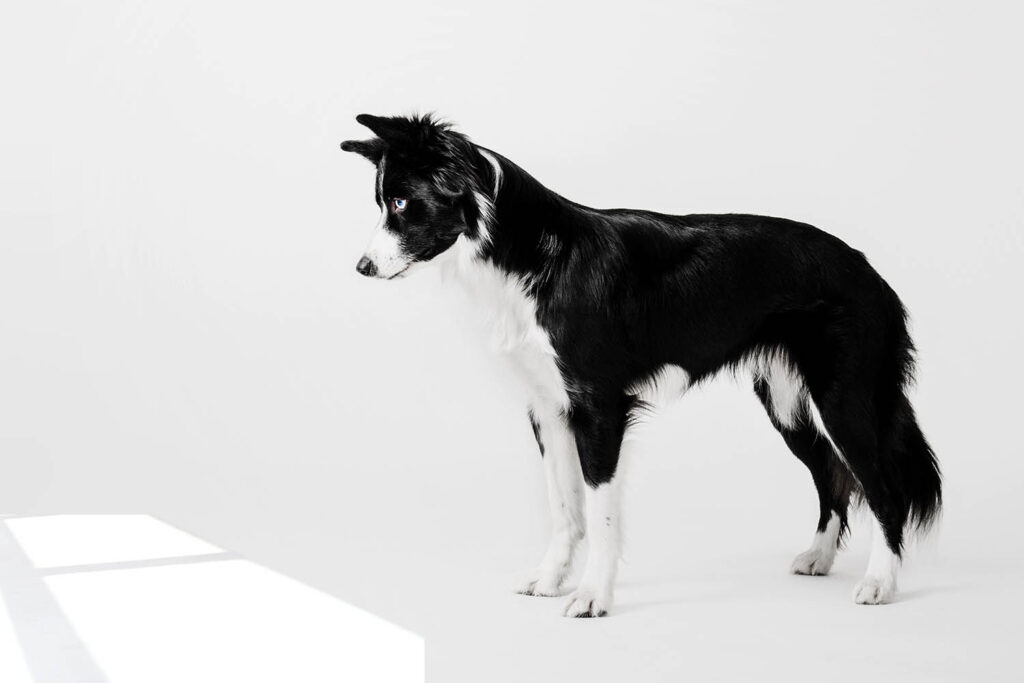
This video shows one of our shadow chasing border collie clients before we started behavioural training to reduce the amount of time he was fixating on shadows:
Why do dogs chase shadows?
There are many different reasons why border collies, and other breeds, may start to chase shadows, and in order to reduce the behaviour, it helps to find out why it started in the first place.
Shadow chasing in border collies can be caused by:
- Conflict – when the animal has two strong but conflicting motivations, such as a desire to play roughly with the owners, but they know that they may be told off for doing so, or confusion about what is required by the owners due to miscommunication.
- Pain or discomfort – even though your collie appears to be perfectly fit and well, there could be some niggling ache or pain that is dulled by repetitive movements.
- A form of seizure or epilepsy
- Play – the dog is genuinely seeing the shadow as a moving object to chase and try and catch. However, the item cannot be caught, which can often lead to intense frustration and increased excitement and arousal, making the behaviour more intense.
- A learned response – used in order to get owner’s attention. This is often the case when puppies are introduced to laser pens, or when owners notice their puppy watching watch face reflections or shadows on the wall and laugh and encourage the dog, making it a fun game.
- A compulsive disorder – can occur when the shadow chasing starts to get more intense and take over every waking moment of the dog’s day. This becomes a welfare issue and needs resolving to improve the dog’s quality of life.
In order to determine which of these might be causing the behaviour, and to minimise or eliminate the chasing, you will need the help of a behaviourist, preferably one who specialises in border collies. Without knowing what could be causing a shadow chasing border collie to chase shadows, it’s very difficult to treat the problem successfully. However, the following guidelines will help reduce most cases, and ideally should be followed as soon as you notice that your collie has started to take an unhealthy interest in moving lights, reflections or shadows:
NEVER encourage
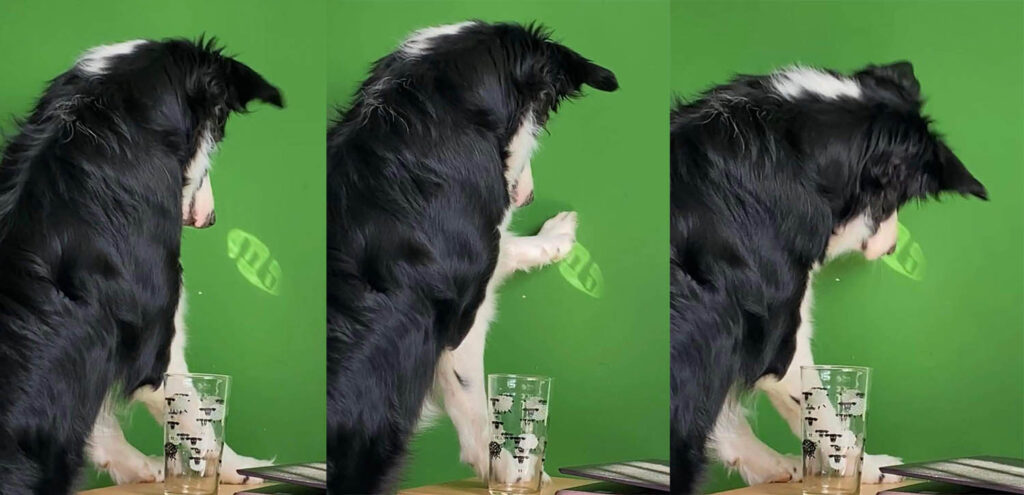
Never encourage any sort of play or chasing of laser pens, lights, reflections or shadows of any kind. If you notice the dog starting to pay attention to any of these, don’t make a fuss, just simply remove the dog from the situation and set up the environment to ensure that it doesn’t happen again.
Prevent the chasing/watching
Prevent the behaviour as much as possible. So if your dog only chases shadows in the kitchen while you are cooking, keep him out of the kitchen while you are cooking. If he only notices shadows on walls due to street lights when you are walking him at night, walk him in the daylight only. If he is reacting to reflections from cutlery on the table, keep him under the table where he can’t see the reflections. The more you can do to prevent the behaviour from intensifying the better, the easier it will be to resolve.
Interrupt the behaviour
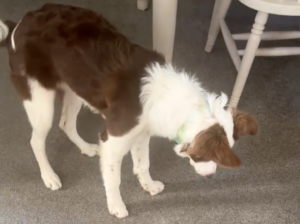
For instance, you could:
- ring the doorbell
- pick up one of his toys and throw and catch it by yourself
- give a different pet a lot of loud, obvious attention that is likely to get the attention of your dog, who will be intrigued by what is happening.
Once you have his attention, ask for a different behaviour, eg. sit, lie down or do a trick that he enjoys doing. THEN you can give him some praise and attention. By interrupting the shadow chasing in this way, getting his attention, then asking for a different behaviour that you can then reward, you are stopping it without reinforcing him. Remember that, to a dog that is bored, even being told off is better than no attention.
Be consistent and predictable
This may sound very insignificant, but if your dog is conflicted, it may be because different members of the family are treating him differently, or it may be because one time he does something he is fussed and praised, but another time he is told off. Ensure that you are interacting with him consistently. For example, when someone sometimes lets a dog on the settee at certain times but tells him off at other times, or when owners are happy for their dog to jump up when his paws are dry but then get angry when he jumps up when his paws are muddy. Border collies can be so sensitive that sometimes just fussing them can cause conflict if it’s a little too rough for them, or they don’t feel comfortable being fussed. It can often take the experience of a behaviourist to read the dog’s very subtle body language that gives us the necessary insight into how the dog feels about different situations and contexts.
General training
Carrying out some general training activities with shadow chasing dogs can help owners be more predictable and consistent and can improve dog-owner communication significantly. Clicker training your dog, starting from the basics, and building up to tricks is great for this!
Get in touch with a behaviourist
Whilst working through the steps above, contact a behaviourist for help. It may be that your dog needs certain psychoactive medications that can help to reduce the behaviour alongside the behaviour modification plan that your behaviourist will give to work upon. Shadow chasing is a serious condition that can have a very negative impact on the welfare of dogs, so it’s important to get help as soon as you see your dog starting to practise any form of watching, pouncing on, chasing or in any other way reacting to lights, shadows, reflections or anything similar. The longer the shadow chasing dog has been obsessed with shadows, the harder it is to stop.
For specialist border collie shadow chasing help and advice, please get in touch.
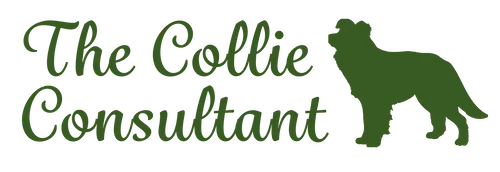
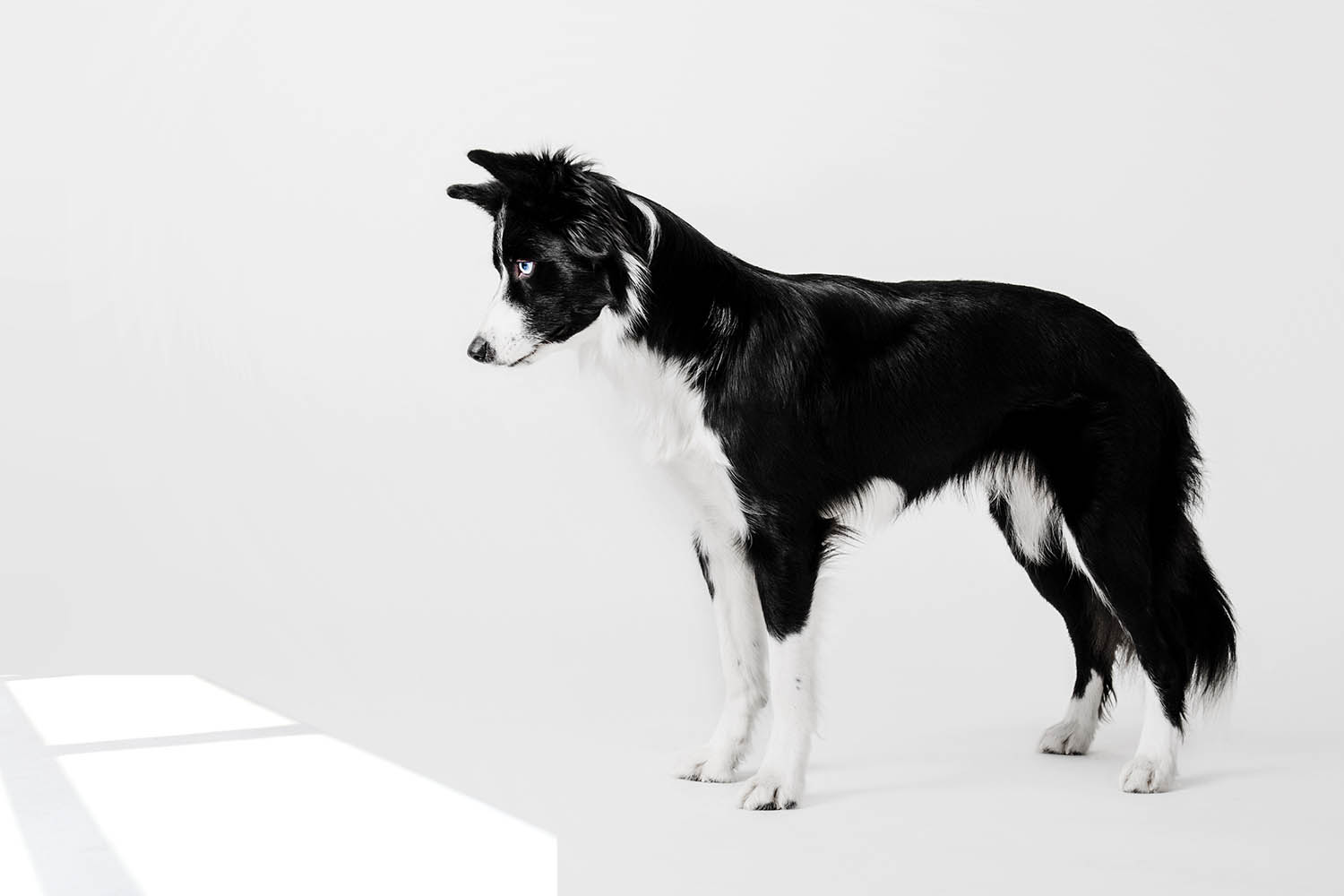
We have just re-homed a 2yr old border collie and she constantly chasers shadows and reflection in mirrors and we are at a loss as to how to deal with it
Hi Janice, how you treat the behaviour depends very much on why your dog is doing it. The only way I can give accurate advice would be to arrange a behavior consultation. These are usually £290 but as I have a special interest in shadow and light/reflection chasing, I’d be willing to do this for you for £190. You can read more about the process here: https://collieconsultant.co.uk/border-collie-training-services/border-collie-behaviour-consultation/. It sounds a lot, but it’s a full training plan, as many training session as you need and 3 months’ support. Please email me on collieconsultant@gmail.com if you’d like to go ahead.
Hi,
I keep finding your informative posts, but unfortunately live in Australia. I can’t seem to find a consultant like yourself to work with our BC. I don’t suppose you know of any professionals in the state of Victoria who you could recommend?
Hi, I know one very good border collie trainer in Australia Her name is Katey Moran and this is her email address: Woof@herdynerdy.com.au. By a massive stroke of luck, she is in Victoria!!
Many thanks for this Rachel!
That is fortunate. I shall follow up and get in touch with Katey.
H
You’re welcome!
I have a border collie puppy, she’s just about 8 months old. I play with her constantly and she runs outside a lot. All of a sudden she started shadow chasing. For hours at bedtime I can’t find a solution to stop her. She acts crazy. She was fine now she’s not. I googled it and I found out it’s common in border collies and came to this page. Help I’m at a loss I’ve tried a lot and she just keeps getting more crazy everyday. It’s been about 4 or 5 days maybe of this behavior so it’s new.
Hi Kaylee,
I’m so sorry to hear this – it’s very common and can be quite difficult to stop, but I can definitely help.
I’ve just started a Facebook group for collies with these sorts of repetitive behaviours:https://www.facebook.com/groups/880344950493546
This will help – have a read through everything. If you still need help, please get in touch on collieconsultant@gmail.co.uk.